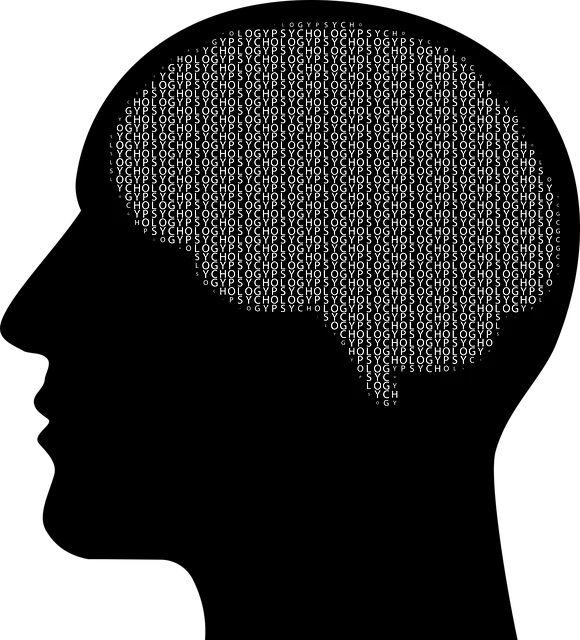Denver Kaiser's innovative Denver Kaiser mental health classes harness the RFM (Recovery, Flexibility, Mastery) model to build resilience through trauma support, coping skills development, and self-care routines. Combining therapeutic techniques with compassion cultivation, these classes empower individuals with practical tools for emotional well-being, stress management, and enhanced mental fortitude. Integrating RFM exercises in community, educational, and corporate settings fosters a resilient mindset, improves mental health outcomes, and reduces stigma. A data-driven approach ensures continuous program improvement while cultural sensitivity promotes inclusivity.
Resilience is a powerful tool for navigating life’s challenges, and RFM (Recovery, Flexibility, and Mastery) exercises offer a structured approach to building this strength. This article explores how Denver Kaiser’s innovative mental health classes integrate RFM principles, enhancing participants’ ability to cope with stress and adversity. We’ll delve into the key components of effective resilience training, its implementation across various settings, and methods for measuring success. Discover how these strategies can foster a more resilient community.
- Understanding RFM and its Role in Resilience Building
- Denver Kaiser's Approach to Mental Health Classes
- Key Components of Effective Resilience Exercises
- Implementing RFM in Various Settings
- Measuring Success and Continuous Improvement
Understanding RFM and its Role in Resilience Building

Resilience is a vital component of mental wellness, enabling individuals to cope with life’s challenges and setbacks effectively. Denver Kaiser mental health classes often emphasize this concept through various exercises designed to build resilience. The RFM (Recovery, Flexibility, and Mastery) model is one such framework that guides these practices. This approach helps participants understand their unique resources and coping skills development while fostering a sense of control over their lives.
By focusing on recovery from past traumas or difficult experiences, flexibility in navigating present challenges, and mastery over personal reactions, RFM offers a structured path towards resilience. Denver Kaiser’s classes incorporate compassion cultivation practices to enhance this process, encouraging participants to be kinder and more understanding towards themselves and others. This holistic approach not only strengthens mental wellness but also empowers individuals to lead more fulfilling lives.
Denver Kaiser's Approach to Mental Health Classes

Denver Kaiser, a renowned expert in mental health and resilience, has developed an innovative approach to teaching emotional well-being through his signature Denver Kaiser mental health classes. These interactive sessions are designed to empower individuals with practical tools for navigating life’s challenges. By combining therapeutic techniques with empathy-building strategies, Kaiser creates a supportive environment where participants learn to cultivate resilience and self-care habits.
His unique method includes various exercises focused on trauma support services and confidence boosting. Through these activities, students gain insights into their emotional responses and develop coping mechanisms to enhance their overall mental fortitude. The Denver Kaiser mental health classes have gained popularity for effectively teaching individuals how to recognize and manage stress, anxiety, and other common mental health concerns, ultimately fostering a more resilient mindset.
Key Components of Effective Resilience Exercises

Resilience exercises are a powerful tool to enhance mental health and well-being, as emphasized by experts like Denver Kaiser. When designing effective resilience training programs, several key components come into play. Firstly, Mood Management techniques are essential; this includes teaching individuals how to recognize and regulate their emotions, ensuring they can navigate stressful situations with a calmer mindset. Techniques such as mindfulness meditation and cognitive reframing help individuals gain control over their emotional responses.
Additionally, Coping Skills Development is vital. These skills enable people to effectively deal with challenges and setbacks. Role-playing scenarios, for instance, can prepare individuals to handle difficult conversations or conflicts. Encouraging healthy coping mechanisms like exercise, social support, or creative outlets allows participants to build a comprehensive Self-Care Routine Development for Better Mental Health. By integrating these elements into Denver Kaiser mental health classes, students gain practical tools to foster resilience and maintain emotional balance in their daily lives.
Implementing RFM in Various Settings

The implementation of RFM (Resilience, Flexibility, and Mindfulness) exercises can be tailored to various settings, offering a versatile approach to mental health promotion. Denver Kaiser’s mental health classes, for instance, have successfully integrated RFM practices into their curriculum, catering to individuals seeking personal growth and resilience-building. These exercises are not limited to traditional therapy spaces; they can be adapted for community centers, schools, or even corporate wellness programs, making mental health education more accessible.
The Mental Health Education Programs Design benefits from RFM by providing participants with practical tools to navigate life’s challenges. Similarly, Trauma Support Services and Social Skills Training can incorporate mindfulness practices to aid individuals in processing traumatic experiences and improving interpersonal interactions. By incorporating RFM into diverse settings, organizations contribute to building a more resilient community, fostering an environment where individuals feel equipped to handle stress, trauma, and social situations with enhanced mental agility.
Measuring Success and Continuous Improvement

Measuring Success is a critical component of any resilience-building program, especially when implementing RFM (Recovery, Flexibility, and Mastery) exercises. The Denver Kaiser mental health classes take a data-driven approach, tracking key performance indicators to gauge the effectiveness of interventions. This involves collecting feedback from participants, analyzing changes in symptoms and behavioral patterns, and evaluating the overall impact on their mental well-being. By regularly reviewing these metrics, instructors can identify areas for improvement and tailor future sessions to better meet the diverse needs of the individuals involved.
Continuous Improvement is fostered through this iterative process, ensuring that the RFM exercises remain relevant and impactful. The classes aim to not only reduce the Stigma associated with Mental Illness but also prevent Depression by providing participants with practical tools and strategies for coping. Cultural Sensitivity in Mental Healthcare Practice is a guiding principle, with instructors being vigilant about incorporating diverse perspectives and ensuring that all exercises are inclusive and accessible. This holistic approach not only enhances the effectiveness of the program but also contributes to broader efforts in improving mental healthcare services.
The implementation of RFM (Resilience, Flexibility, and Mastery) principles, as demonstrated by Denver Kaiser’s innovative mental health classes, offers a powerful framework for building resilience. By integrating these concepts into various settings, individuals can develop the tools to navigate challenges effectively. Key components like mindfulness exercises, cognitive reframing, and problem-solving strategies prove essential in fostering adaptability and emotional agility. Continuous improvement, measured through participant outcomes and feedback, ensures that RFM practices remain impactful and relevant in enhancing mental resilience among all users.






